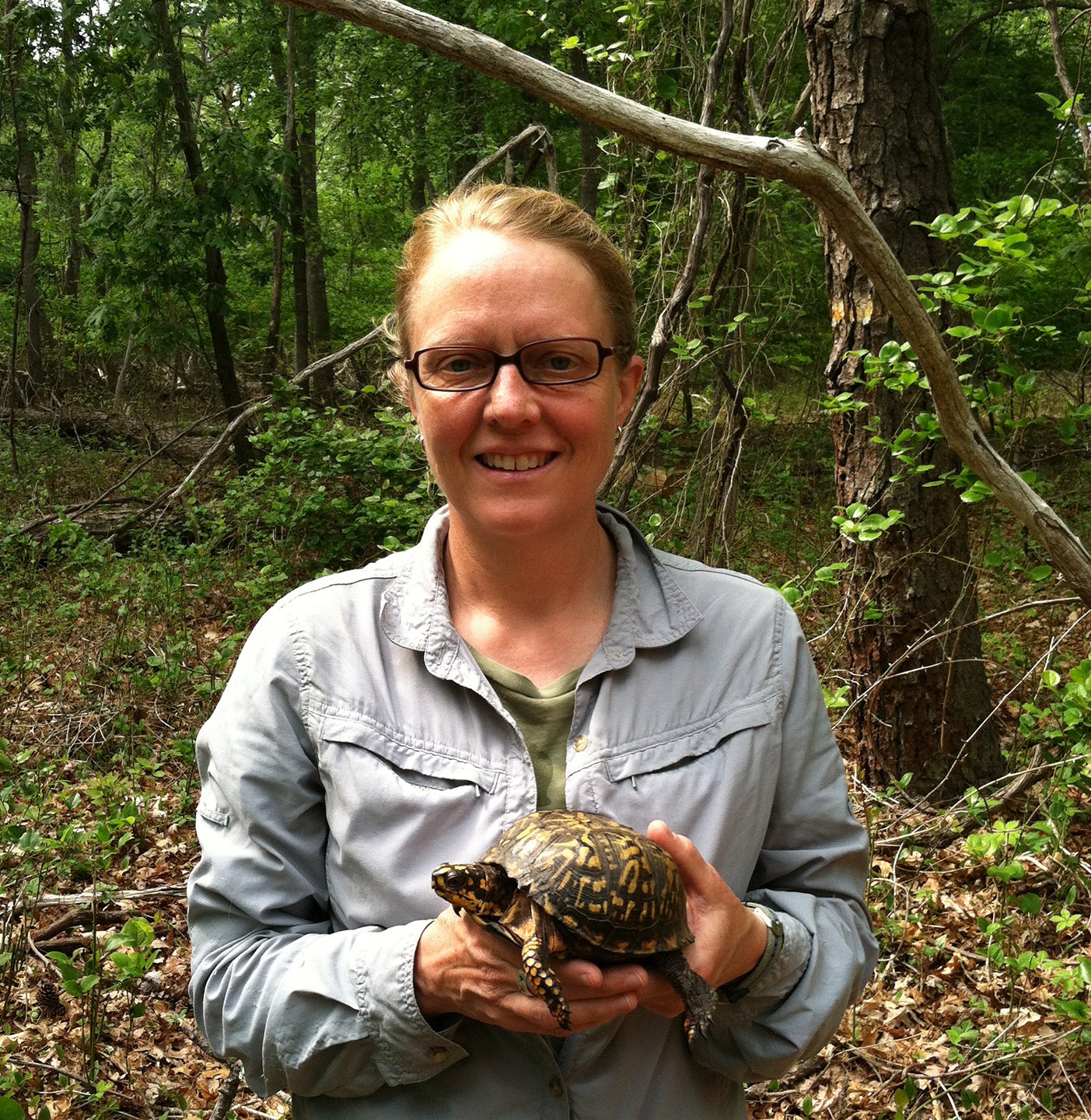KINGSTON, R.I. – March 20, 2017 – University of Rhode Island herpetologist Nancy Karraker has been awarded a prestigious Fulbright grant to travel to Indonesia to study declining populations of a turtle that is collected for food, traditional medicine and the pet trade, making it the most heavily traded turtle in the world.
Karraker, an associate professor of natural resources science, will spend seven months studying the Southeast Asian box turtle at Rawa Aopa Watumohai National Park in southeast Sulawesi, Indonesia. The Agricultural Institute of Bogor in Java will host her from November 2017 to May 2018.
“Turtles are declining rapidly throughout Southeast Asia,” said Karraker. “You can’t even do a population study of turtles in China anymore because most of them are functionally extinct. I’ve worked in Indonesia before – the language is beautiful, the culture is beautiful, the food is spectacular. But more important, this turtle is in trouble, and I know of only two places in Indonesia where enough still exist to study.”
Karraker said that turtles are in crisis in Asia. So many have been collected for food and the pet trade that many species are nearing extinction.
“And yet there are many species for which not a single population study or ecological study has ever been conducted,” she said. “If these turtles are disappearing, and if we need to develop captive breeding programs, we don’t know how to start because we don’t’ even know what they eat or how they reproduce.”
In 2006, a German researcher conducted the only population study of the Southeast Asian box turtle, which included visits to markets in major cities to see how many were for sale. Karraker plans to follow up on that study with a more extensive population analysis inside and outside the national park. She will also revisit the markets to see if the turtles are still available for sale.
“This turtle used to be one of the most abundant turtles in Southeast Asia,” she said. “It had a broad distribution and used to be very common, but populations have been declining. Only in Sumatra and southeast Sulawesi do populations still exist that are large enough to study. If I can study their population biology there, maybe we can actually do something to protect them.”
Karraker was born at the Grand Canyon and grew up in Yosemite National Park and Olympic National Park. Her father was a ranger for the National Park Service. She started her career as a post-doctoral researcher and assistant professor at the University of Hong Kong conducting studies in China, Thailand and Indonesia to determine how much harvesting the populations of frogs and turtles can withstand before they disappear. A resident of Kingston, she joined the URI faculty in 2012.
In addition to her study of the Southeast Asian box turtle, Karraker will use her Fulbright grant to teach several scientific writing workshops to faculty and graduate students at Indonesian universities – she earned a master’s degree in the teaching of writing as well as a doctorate in conservation biology. She will also present several seminars on the Asian turtle crisis and her research.
“By the time I get back, I hope to be fluent in Indonesian language,” Karraker said. “I took a language class there a few years ago, and I can get by. But my research site is two and a half hours from the nearest city, so I’ll have to improve a bit to be able to do what I need to do.”
The Fulbright Program is the flagship international educational exchange program sponsored by the U.S. government and is designed to increase mutual understanding between the people of the United States and the people of other countries. Recipients of Fulbright grants are selected on the basis of academic or professional achievement, as well as demonstrated leadership potential in their fields. Established in 1946, the program operates in more than 155 countries worldwide.

